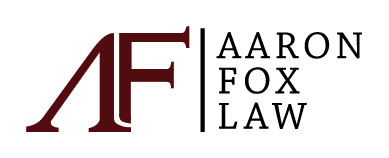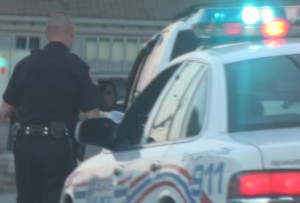As every citizen knows well, it’s easy to get a police ticket. Members of the Chicago Police Department issue tickets for a wide range of infractions including: drinking while driving; driving while speaking on a cell phone without a hands-free device; speeding; owning a burglar alarm which alerted without being triggered by an emergency; urinating in public; drinking in a public area; gambling; and bicycling on a sidewalk.
Administrative Notices of Violations (ANOV), or police tickets issued for violating an ordinance, include the date, time, and location of the offense, as well as details to support the allegation. An ANOV will also identity the person named, and the ordinance allegedly violated. The details included in an ANOV are critical in defending against a ticket in court.
Administrative cases, such as police ticket cases, are heard by the City of Chicago Municipal Hearings Division at 400 West Superior Street, Chicago. At an administrative hearing, an Administrative Law Judge (ALJ) will decide, based purely on the ANOV, whether or not the City has met its prima facie case. If the facts as alleged by the ANOV are insufficient to support the ticket recipient’s liability, or the ANOV is filled out incorrectly, the case will be dismissed. If the ANOV both alleges a sufficient factual basis and is filled out correctly, the ticket recipient will be given a chance to explain and defend his case. Based on the ANOV and the ticket recipient’s presentation, the ALJ will determine whether or not the ticket recipient is liable.
Approaching a police ticket hearing with an attorney at your side offers many advantages. An attorney can help you prepare your evidence before the trial and determine which facts will be most helpful in presenting your case. An attorney familiar with administrative hearings will ensure your case is presented in the most favorable light and help pinpoint possible flaws in the City’s presentation of its prima facie case. In addition, an attorney can help you avoid common pitfalls inherent in a detail-driven legal system. Thus, an attorney’s representation can be of great service in defense of your case.
For a list of the most commonly cited Police Ordinance Tickets and the potential fines and court costs, see the table below.
If you have a Chicago Municipal Code violation, and want to discuss your case, contact Aaron Fox Law now for professional, high-caliber, legal expertise; email afox@aaronfoxlaw.com, call (312) 224-0028, or fill out and submit the interactive form below. We look forward to representing you.
Most Common Violations
Talking on Cell Phone without Hands-Free Device (MCC 9-76-230(a))
The fine range on this ordinance violation ticket is between $90 and $500. This comes with court costs between $20 and $60, depending on several determining factors.
There are several defenses that you should know about.
False Burglar Alarm (MCC 8-4-056(b))
The fine for this ordinance violation ticket is $100 This comes with court costs between $40 and $60, depending on several determining factors.
There are several defenses that you should know about.
Drinking on the Public Way (MCC 8-4-030(a))
The fine range on this ordinance violation ticket is between $100 and $500. This comes with court costs between $40 and $60, depending on several determining factors.
There are several defenses that you should know about.
Public Urination (MCC 8-4-081)
The fine range on this ordinance violation ticket is between $100 and $500. This comes with court costs between $40 and $60, depending on several determining factors.
There are several defenses that you should know about.
Bicycling on the Sidewalk (MCC 9-52-020)
The fine range on this ordinance violation ticket is between $50 and $200. This comes with court cost between $20 and $60, depending on several determining factors.
There are several defenses that you should know about.

